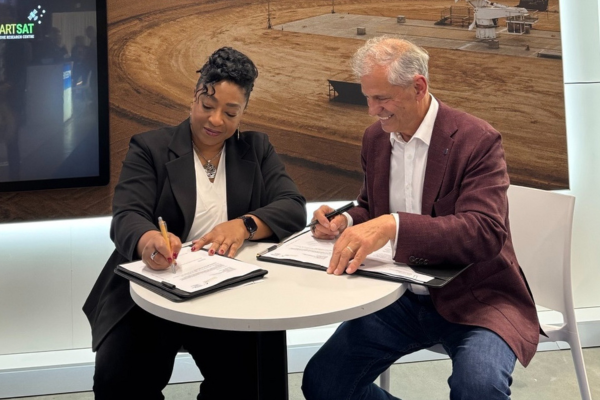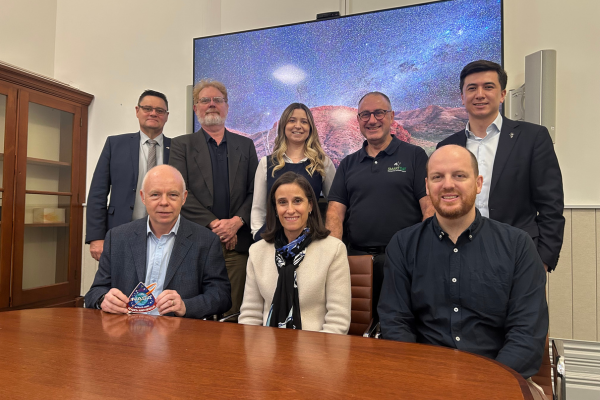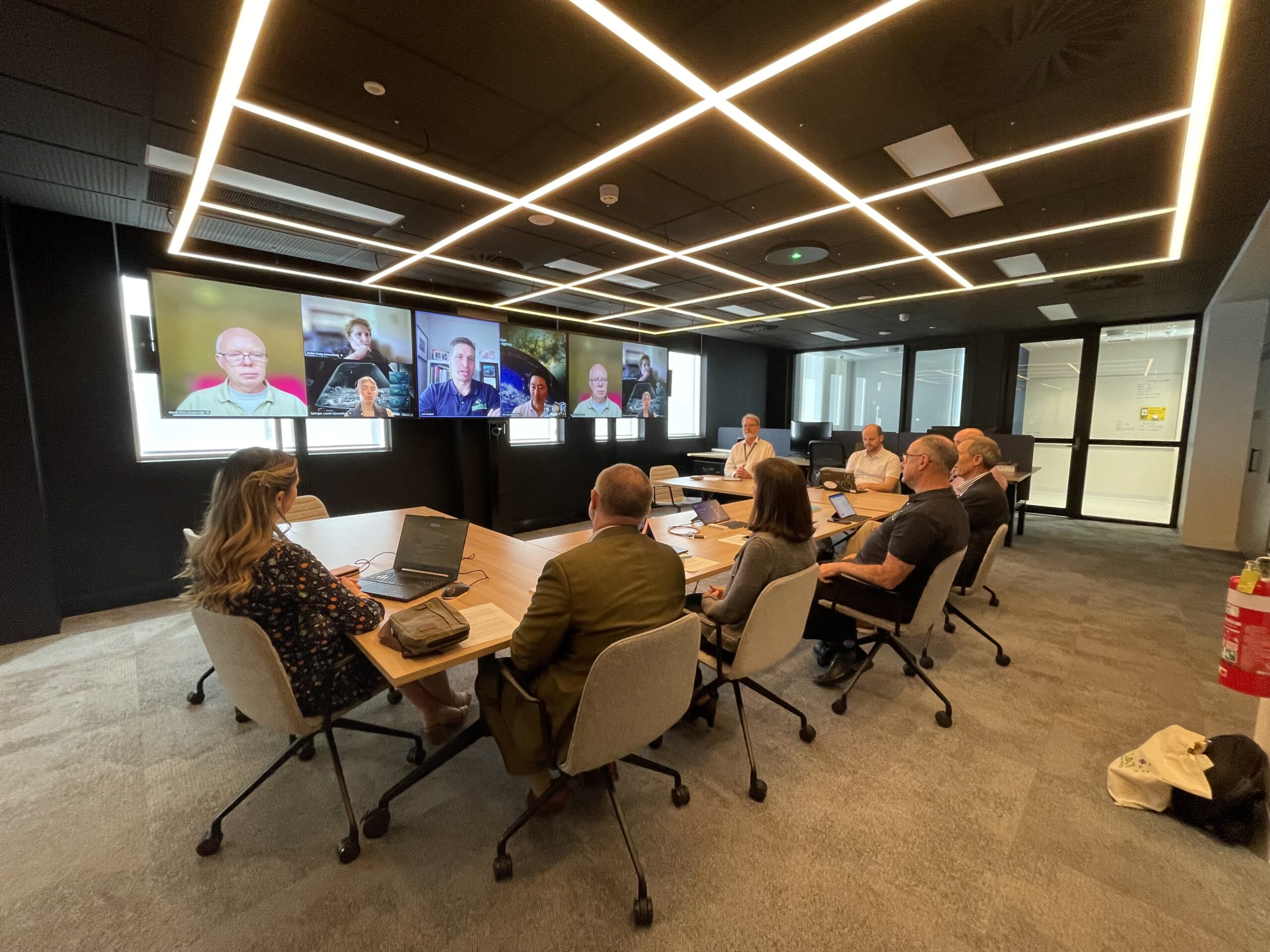SmartSat has continued to foster its strong relationship with NASA during IAC 2024 with the signing of a renewed agreement to collaborate on advanced technologies.
Last week during IAC 2024 in Milan, Professor Andy Koronios met with Dr Christyl Johnson to sign the renewal of our agreement with NASA Search and Rescue (SAR) to collaborate on and promote new system and waveform enhancements to search and rescue beacon technologies.
 SmartSat CRC CEO, Professor Andy Koronios (right) signs an agreement to continue the working relationship with NASA with NASA Goddard Deputy Center Director for Technology and Research Investments, Dr Christyl Johnson (left) at the IAC 2024 in Milan earlier this month.
SmartSat CRC CEO, Professor Andy Koronios (right) signs an agreement to continue the working relationship with NASA with NASA Goddard Deputy Center Director for Technology and Research Investments, Dr Christyl Johnson (left) at the IAC 2024 in Milan earlier this month.
Meanwhile, back at SmartSat headquarters in Adelaide, NASA SAR Mission Manager Dr Lisa Mazzuca was in town for a series of workshops and meetings to progress to collaboration between SmartSat, NASA SAR and Safety from Space.
During this visit, Safety from Space CEO and Founder Dr Mark Rice kicked off the new South Australian Space Collaboration and Innovation Fund project “Field Trials of Advanced Satellite Communications for Astronaut Search and Rescue”. The project will demonstrate advanced satellite communications (SATCOM), using IP developed through SmartSat funded research projects (RESARC and LunaSAR), for future astronaut search and rescue operations on the surface of the Moon. Aiming to support NASA’s planned Lunar Search And Rescue (LunaSAR) service, the new system is designed to be lighter and more reliable than current devices on the market, with a longer battery life.
 (L-R back) Defence SA Executive Director Defence and Industry Ian Spencer; SmartSat CRC Defence & National Security Coordinator, Peter Kerr; Safety from Space Project Manager, Alex Ryan; SmartSat Research Program Manager, Jeff Kasparian; Defence Innovation Partnership Pathways Manager, Bez Mohammadi.
(L-R back) Defence SA Executive Director Defence and Industry Ian Spencer; SmartSat CRC Defence & National Security Coordinator, Peter Kerr; Safety from Space Project Manager, Alex Ryan; SmartSat Research Program Manager, Jeff Kasparian; Defence Innovation Partnership Pathways Manager, Bez Mohammadi.
(L-R front) Safety from Space Founder & CEO, Dr Mark Rice; NASA Search & Rescue Mission Manager, Dr Lisa Mazucca; SmartSat CRC Research Program Manager, Dr Andrew Barton.
The field trials will be conducted in collaboration with NASA, The Mars Society (US and Australian arms) and several Australian partners, including SmartSat, the University of South Australia (Uni SA) and Flinders University. The success of the demonstration, funded through the South Australian Space Industry Centre’s South Australian Space Collaboration and Innovation Fund and SmartSat, could pave the way for a unique Australian contribution into NASA’s Artemis Program, as well developing applications for emergency communication in remote areas back here on Earth.
 Representatives from SmartSat, Safety from Space, NASA Search and Rescue and the Australian Space Agency meet in SmartSat’s SCARLET Lab to go over future collaborations.
Representatives from SmartSat, Safety from Space, NASA Search and Rescue and the Australian Space Agency meet in SmartSat’s SCARLET Lab to go over future collaborations.
SmartSat, in collaboration with Safety from Space, also committed to continue working with NASA to develop an integrated roadmap and implementation plan for the LunaSAR project, with the end point being the utilisation of Australian technology to support future Artemis astronauts on the Moon.
We are excited to continue highlighting the ongoing strong relationship we share with our colleagues at NASA, demonstrated by these simultaneous activities.